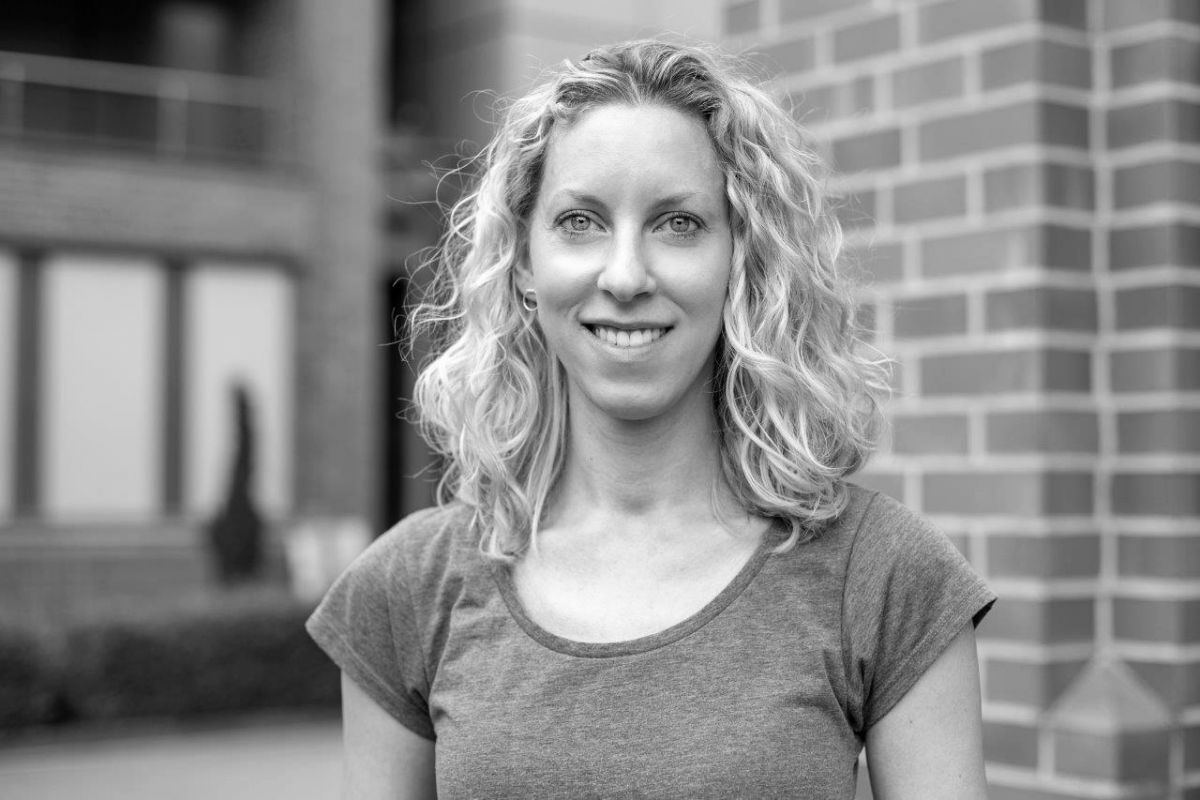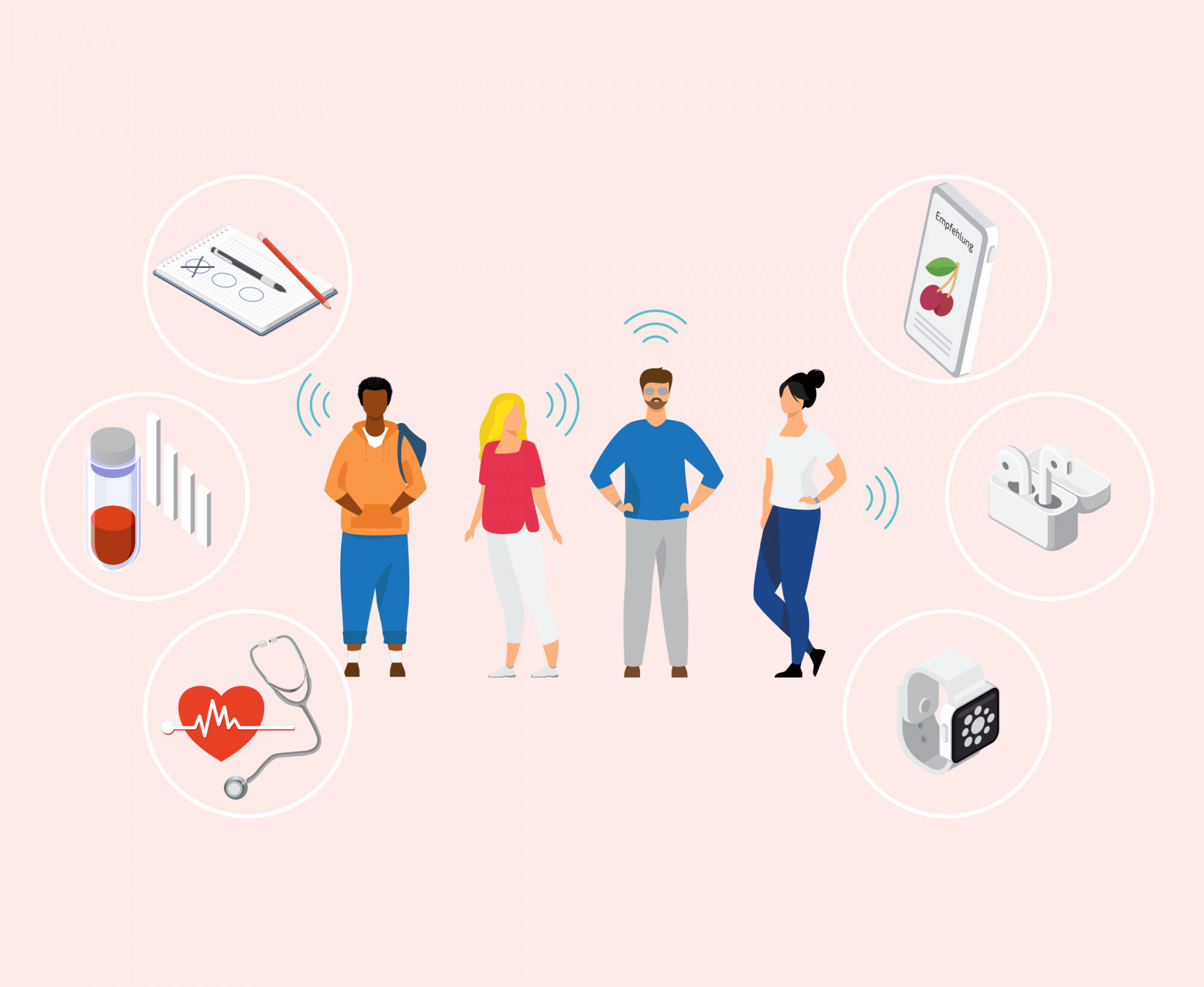Smart Nutrition & Wearable Sensors and Digitization I
Classic methods of nutritional science (questionnaires, blood analyses, recording of vital data) are combined with smart sensors and a health app.
The high demand for nutritional support applications in the general population can be estimated on the basis of the more than 100,000 health and nutrition apps currently available. The available apps range from diet diaries over calorie counters to diet or meal planners. Existing apps mostly work on the basis of user input, which often has a subjective character in terms of the anthropometric data specifications such as weight, height and body circumference, as well as in terms of the dietary habits of the users.
The use of biosensors to measure a person’s nutritional and health status opens up the possibility to create an objective, evidence-based method for the development of a reliable healthcare app using real data generated by sensors. For this purpose, a pilot study will first generate data from young, healthy volunteers using portable sensors and nutrition protocols that reflect their nutritional and health status. The collected data will then be used in a machine learning process to develop a lifestyle and healthcare app, which will provide the wearer with concrete suggestions based on their individual physiological-medical phenotype for the selection of food and the time of consumption. In a validation study, these sensors are then used for a nutritional intervention with protein-rich foods in >50-year-old subjects. Based on the obtained sensor data, food proposals for various dietary scenarios will be developed.
Current nutritional guides do not include specially designed food components and usually only a limited selection of locally available foods that can be delivered within transport routes. Therefore, as part of the f4f-subproject, the novel foods that are developed and designed within the framework of food4future (f4f) will be added into the food spectrum of the app, thus expanding its offer for an individualized, needs-based diet. The large selection of local foods in the app's food spectrum ensures that the optimal provision of its users can still be guaranteed in spite of the changing globalized markets and environment ("No Land”, “No Trade") without having to resort to exotic, long-distance food.
D. Weber, T. Hening (DIfE)
Contact
German Institute of Human Nutrition Potsdam-Rehbruecke (DIfE)
Arthur-Scheunert-Allee 114-116
14558 Nuthetal
Germany
Website
www.dife.de, Department Molecular Toxikology
Project duration
October 2019 - February 2024
Interaction with f4f and other partners
TH Wildau

Dr. Daniela Weber is a Post-Doc in the Molecular Toxicology Department at the German Institute for Human Nutrition Potsdam-Rehbruecke (DIfE). She is interested in lipid-soluble micronutrients in human studies related to aging. In Food4Future, she is responsible for the sub-project Smart Nutrition & Wearable Sensors, where these new technologies will find application in two intervention studies.

Dr. Bastian Kochlik is a Post-Doc in the department Molecular Toxicology (MTOX) at the German Institute of Human Nutrition Potsdam-Rehbruecke (DIfE). His research interest focuses on investigating different nutrition-, muscle- and inflammation-related biomarkers in human studies and considering aging. In food4future, he works in the sub-project “Smart Nutrition & Wearable Sensors I”.

Thorsten Henning is a state-certified food chemist and works as a PhD student in the Department of Molecular Toxicology at the German Institute of Human Nutrition Potsdam-Rehbrücke (DIfE). His research focus is on the quantification of fat-soluble micronutrients using liquid chromatography-mass spectrometry and he is working in the food4future subproject Smart Nutrition & Wearable Sensors.
Henning T, Wagner P, Gedat E, Kochlik, B; Kusch P, Sowoidnich K, Vastag M, Gleim, J, Braune M; Maiwald M, Sumpf B, Grune T, Weber D. (2023). Evaluation of Modern Approaches for the Assessment of Dietary Carotenoids as Markers for Fruit and Vegetable Consumption. (Nutrients).
doi:10.3390/nu15071665
Henning, T., Weber, D. (2021) Redox biomarkers in dietary interventions and nutritional observation studies - From new insights to old problems. Redox Biology (in press)
https://doi.org/10.1016/j.redox.2021.101922
